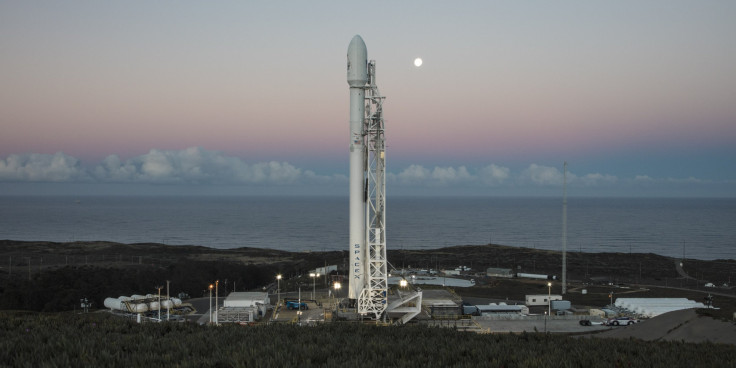Watch Live: SpaceX Launch Of Iridium Satellites

SpaceX kicked off launches on Friday afternoon at the Kennedy Space Center in Florida with the launch of the Bulgaria-Sat1 on a previously used Falcon 9 rocket. The plan is to conclude the weekend with a Sunday afternoon launch of satellites on a new Falcon 9 rocket.
If both launches go according to plan, unaffected by weather, the weekend will be the shortest amount of time between two launches that SpaceX has ever pulled off, reported the Los Angeles Times. Part of the reason for this is that Friday’s launch was originally scheduled to take place days earlier but it was scrubbed because a last minute necessary valve replacement.
Read: SpaceX And NASA Are Both Working To Get Humans To Mars, Who Will Do It First?
The possible doubleheader was announced on Sunday after the initial BulgariaSat launch was scrubbed. While the two are scheduled roughly 48 hours apart and in different states on different coasts of the country, it’s still a big deal for the company. The increasing number of launches is giving the company the experience and confidence it needs to further develop its mission to Mars.
Elon Musk founded SpaceX with the goal of one day sending humans to Mars and creating a colony there to successfully make humans a multi-planetary species. He believes that there will be a mass extinction event that will take out humans, but if we’re on Mars in addition to Earth, the species will continue. While SpaceX has elaborate and detailed plans for travel to and the colonization of Mars, there are still a few major obstacles standing in the way. The cost of it all is a major hurdle the company is working out how to clear.
The company plans to do this through contracted work, such as what SpaceX does for NASA launching resupply missions to the International Space Station, and the Iridium launch of satellites for Iridium. Another way is through the development and use of reusable rockets, a technology the company developed and successfully used earlier this year.
Read: 7 SpaceX Launch Photos That Show Elon Musk's Rockets At Work
Sunday’s launch will be part of the IridiumNEXT launches, SpaceX ran a static fire test on June 20 in preparation for the launch. The eight planned Iridium missions are replacing the current fleet of satellites Iridium has in space with newer ones. The launch on Sunday is the second of the eight missions, the first one was completed in January.
The new satellites will help the company support a larger bandwidth and faster speeds for the voice and data communication the company provides. The low-Earth-orbit satellites will provide coverage across the entire planet, including across oceans.
The launch will be live on SpaceX’s website and on YouTube. The launched is scheduled to launch at 1:25 p.m. PDT.
© Copyright IBTimes 2025. All rights reserved.




















